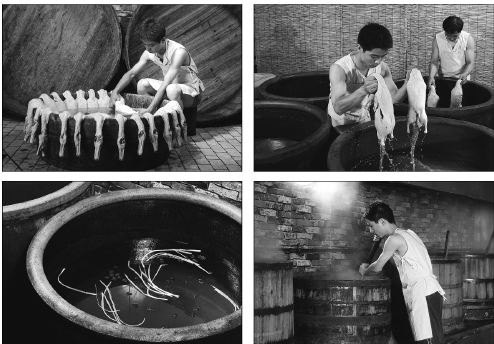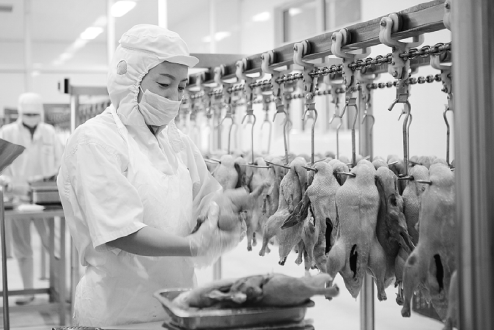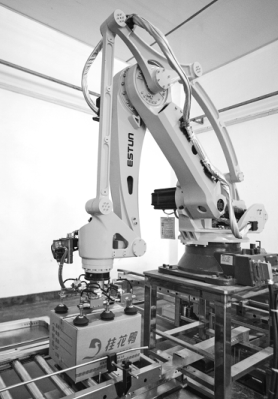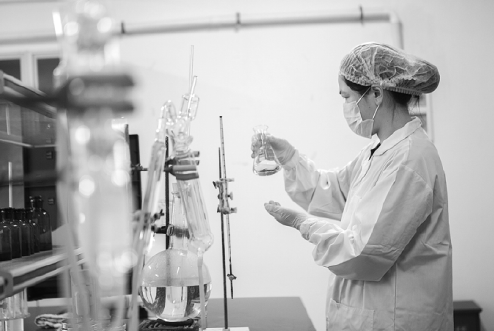While Peking duck has made a name for itself both in China and overseas, Nanjing, capital of Jiangsu province, is known as the country's "duck capital".
Every year, more than 100 million ducks are consumed in the city, which has a human population of more than 8 million. Numerous restaurants and shops selling duck products are scattered throughout residential communities.
Unlike Beijingers, who usually eat roast ducks in restaurants, people in Nanjing often buy freshly roasted or salted ducks from roadside shops to eat at their leisure.
While a whole roast duck in Beijing may cost about 200 yuan ($28), people in Nanjing usually spend about 20 yuan on roasted or salted birds that have been quartered. The vendors then chop the ducks into smaller pieces and wrap them for customers.
In winter, a dark, succulent sauce made in rice cookers is scooped into plastic bags by vendors and sold with chopped roast duck.
If any sauce is left over after the duck has been eaten, it can be used in wax gourd recipes. Many people also add rice to the sauce to make it extra tasty.
Nanjing's love for ducks is well-known nationwide. Duck Duck Goose, a computer-animated comedy film released last year, which was produced by a Nanjing company, tells the story of two ducklings and a goose who gradually form a bond as they fly south.
However, many netizens said the storyline for the movie was unrealistic.
One of the comments made was, "No duck can fly out of Nanjing alive because it will have been made into savory dishes in the city-let alone two ducks journeying south together."
Qin Lin, a Nanjing resident, said: "There are more than 10 shops selling duck products within 1 kilometer of my home. Visitors to Nanjing ask seniors they meet where they can find the best one. Another way is to look for the shop with the longest line of customers, which must make it the most popular in the neighborhood," she said.
The 20-year-old, who is studying at a university in Shanghai, said the first thing she does when she gets off the bullet train in Nanjing is head home to eat duck.
"My parents buy the ducks in advance and put them on the dining table. I like the smell and flavor. To me, this is the smell and taste of my hometown."
Though Peking ducks and Nanjing ducks vary in flavor, appearance and cooking methods, the two have a connection that dates to the Ming Dynasty (1368-1644).
In the 1420s, Emperor Zhu Di, also known as the Yongle Emperor, moved the country's capital from Nanjing to Beijing. Chefs working for the royal family also moved to Beijing, where they came up with new methods to cook duck.
Bianyifang, a well-known Peking duck restaurant in Beijing, was named "Jinling Sliced Duck" when it first opened. "Jinling" is another name for Nanjing.
Peking duck has crispy skin and is sliced into about 100 thin pieces before being served with pancakes, spring onion and cucumber. Sometimes, it is also served with plum or other sauces, and sugar.
However, the sauce that coats roast duck in Nanjing has a color and texture similar to soy sauce. Every restaurant and shop selling ducks in the city claims to have its own special recipe for the sauce.
Not only does the sauce accompanying the duck have a secret recipe, so does the city's signature salted duck.
Xu Jing, who runs a duck shop in Pukou district, said, "The recipe is the secret that makes the ducks delicious and helps us survive in a competitive market.
"The ducks are soaked in a specially made braising liquid for four hours after being covered with salt for three hours," she said. "The braising liquid at my shop has been used for nearly 20 years. The older it is, the better the aroma."
A range of spices, along with water, are added to the pot from time to time to ensure it remains full. New supplies of spring onion and ginger are bought every day.
"We now sell more than 100 ducks a day," Xu said. "My husband and I have to get up at around 3 am to simmer and roast the ducks. But we're satisfied with the money we make, which supports my family."
Zhou Hai, a manager at the Jinling Hotel in Nanjing, said the ducks it uses are chosen carefully to ensure a better taste.
"The ducks should weigh 1.9 to 2.1 kilograms, so that the meat is tender," he said. "The skin should remain intact after the duck is plucked so that the meat doesn't get too salty.
"After being salted and marinated, the duck is cleaned and boiled in water at about 90 C to ensure the meat doesn't get dry too quickly."
Nanjing duck dishes are mentioned in books dating to 2,300 years ago. During the Qing Dynasty (1644-1911), there were already more than 100 duck shops in Nanjing.
The Empress Dowager Cixi (1835-1908) ordered 500 ducks every year from Nanjing, and at the State banquet to mark the founding of the People's Republic of China in 1949, the final dish served was salted duck.
In Nanjing, salted duck is also called osmanthus duck, because high-quality birds can be found in September and October, when the sweet-scented osmanthus plants blossom.
Tao Siyan, a professor with the art school at Southeast University in Nanjing, said geographical reasons have also contributed to the city's love for ducks.
"Surrounded by many rivers and lakes, including the Yangtze River, local people in ancient times raised many ducks that ate the shellfish and other fish in the water. Local people have eaten duck for nearly 1,800 years.
"People used to reward soldiers with rice and ducks. They used salt to give duck meat a longer shelf life, and the special flavor gradually emerged."
Goose meat was also in high demand in ancient China. It was first used for sacrifices and then for banquets by rich families.
Nowadays, geese lay fewer eggs than ducks and require a strictly controlled environment, including humidity levels, temperature and exposure to the sun. As these birds are larger than ducks and chickens, many people worry that goose meat may go bad before it is eaten.
Ducks reach maturity quicker than chickens, with the former ready to be served on dining tables in about 45 days, contributing to their popularity in Nanjing and neighboring areas.
Tao said, "In the Qing Dynasty, Nanjing ducks were not only served to royal families, but also used as presents by officials."
Local people traditionally eat the "five yellows" during Dragon Boat Festival, Tao said, referring to eel, yellow croaker fish, cucumber, salted duck egg and wine. The egg yolk is believed to dispel evil spirits and bring good luck.
"The Chinese word for duck is ya, which sounds the same as 'suppress'. People hope that by eating duck egg yolk, evil spirits can be suppressed," Tao added.
During Dragon Boat Festival, which falls on May 5 in the Chinese lunar calendar, some children in Nanjing hang small sachets round their necks, each with a duck egg inside.
In addition to roast and salted ducks, a range of street foods consisting of duck meat, fat and blood can be found in Nanjing and neighboring cities. One of the best-known is duck blood vermicelli soup, which may conjure up images of Halloween for many visitors. The blood used for the soup is formed into small, red cubes and tastes similar to tofu, only with a more subtle flavor.
Other popular foods made from ducks include soup dumplings stuffed with small pieces of roast duck meat, duck blood wonton and sesame pastry made with duck fat.
People line up for hours at two small shops near the Confucius Temple in Nanjing to buy freshly baked sesame pastry made with duck fat.
Zhu Jun, manager with Nanjing Osmanthus Ducks Group, said it has developed duck products, redesigned its packaging and taken part in many activities to attract more customers and publicize the city's duck culture.
"We've provided new-flavored duck wings, hearts and gizzards," he said. "They are vacuum-packed in well-designed wrapping. We only have about 40 workers at the factory, but we have produced 10 million ducks annually in recent years by using new technologies.
"We hope that time-honored brands of duck products will remain popular among the next generation, and we'll follow trends to publicize the products with more attractive images and better quality."
Guo Jun contributed to this story.




